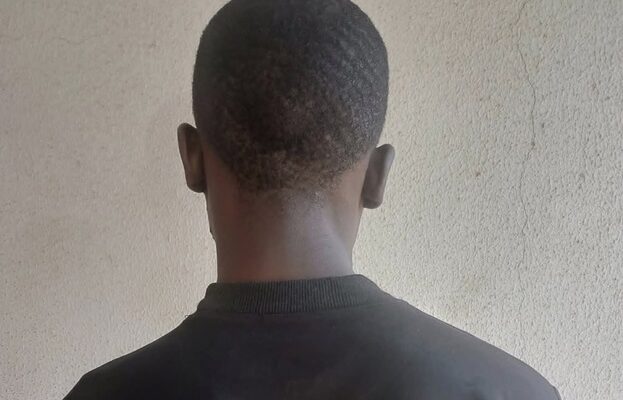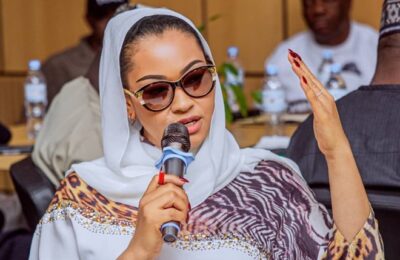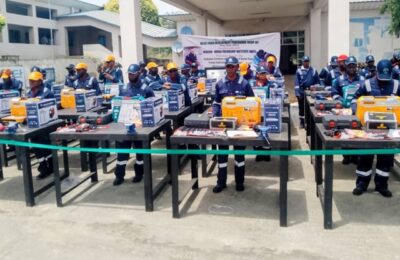In an unexpected twist that exposed the paradoxes of Nigerian governance, a middle-aged man, Idris Adamu, voluntarily presented himself at the Gombe Zonal Directorate of the Economic and Financial Crimes Commission (EFCC) on Monday, June 2, 2025. Adamu walked in at precisely 1300 hours and demanded to see the Acting Zonal Director, Deputy Commander of the EFCC (DCE) Sa’ad Hanafi Sa’ad, not to lay blame or seek protection—but to confess.
With visible contrition, he declared: “I came to repent of my sins and confess to the EFCC. In the past, I obtained a cumulative sum of ₦9 million from individuals under the pretense of offering them jobs in federal government agencies. It was all false. I have changed, but I fear the EFCC.”
Moved by the weight of his admission, DCE Sa’ad expressed appreciation for Adamu’s candor and promptly directed that he be transferred to the commission’s investigation department for a thorough inquiry.
Though the suspect’s actions are criminal by statute, his confession has triggered a larger national conversation. In a society where high-ranking public officials routinely deny wrongdoing—even in the face of overwhelming evidence—this self-surrender stands in sharp contrast to the culture of impunity that has, for decades, plagued Nigerian leadership.
His actions beg the question: What prevents our leaders, who hold the highest offices and greatest responsibilities, from embracing even a fraction of such moral reckoning?
This incident reflects the core of what citizens expect from their leaders: courage, accountability, and a willingness to subject oneself to the rule of law. Nigerians, weary from decades of systemic corruption and broken promises, are once again reminded of what true leadership ought to look like—not in abstractions, but in practical acts of conscience and responsibility.
Former U.S. President Barack Obama once said, “The arc of the moral universe may bend toward justice, but it doesn’t bend on its own.” In Nigeria, it often seems the arc is not only stagnant but pulled backward by those entrusted with power. Adamu, though a fraudster, acted in a manner that compels moral reflection—he recognized the error of his ways and chose the harder path of accountability.
Winston Churchill famously declared, “The price of greatness is responsibility.” Yet in Nigeria, greatness is often sought through accumulation of wealth and influence without the burdens of transparency or service. Leadership, stripped of ethics, becomes a theatre of deception.
It is a paradox that in a nation where leaders are surrounded by security details and afforded every immunity, it is an ordinary man who walks in unaided to face the consequences of his deception. This singular act exposes the urgent need for a redefinition of public service in Nigeria—one rooted not in status or entitlement, but in ethical stewardship.
The tragedy, however, lies in the fact that while this man will be investigated and possibly prosecuted, countless high-profile perpetrators of far greater economic crimes walk free, protected by political connections and institutional silence. Until justice becomes blind not only in theory but in enforcement, stories like Adamu’s will continue to be anomalies rather than the norm.
Nelson Mandela once stated, “A critical, independent and investigative press is the lifeblood of any democracy.” The same can be said of independent institutions like the EFCC. But more importantly, leadership must internalize the values these institutions seek to uphold. Nigeria’s progress will remain stunted unless those at the helm demonstrate the same courage to confront their failures, admit their wrongs, and allow justice to take its course—without manipulation or evasion.
Ultimately, this confession is more than a moment of personal remorse; it is a clarion call to the conscience of the nation. In a just society, leadership is not defined by rhetoric or power, but by the moral fortitude to choose what is right, even when it is inconvenient.
Until Nigeria’s leaders rise to this standard, the question remains: must we always look to the common man to teach uncommon virtue?
– Inah Boniface Ocholi writes from Ayah – Igalamela/Odolu LGA, Kogi state.
08152094428 (SMS Only)




